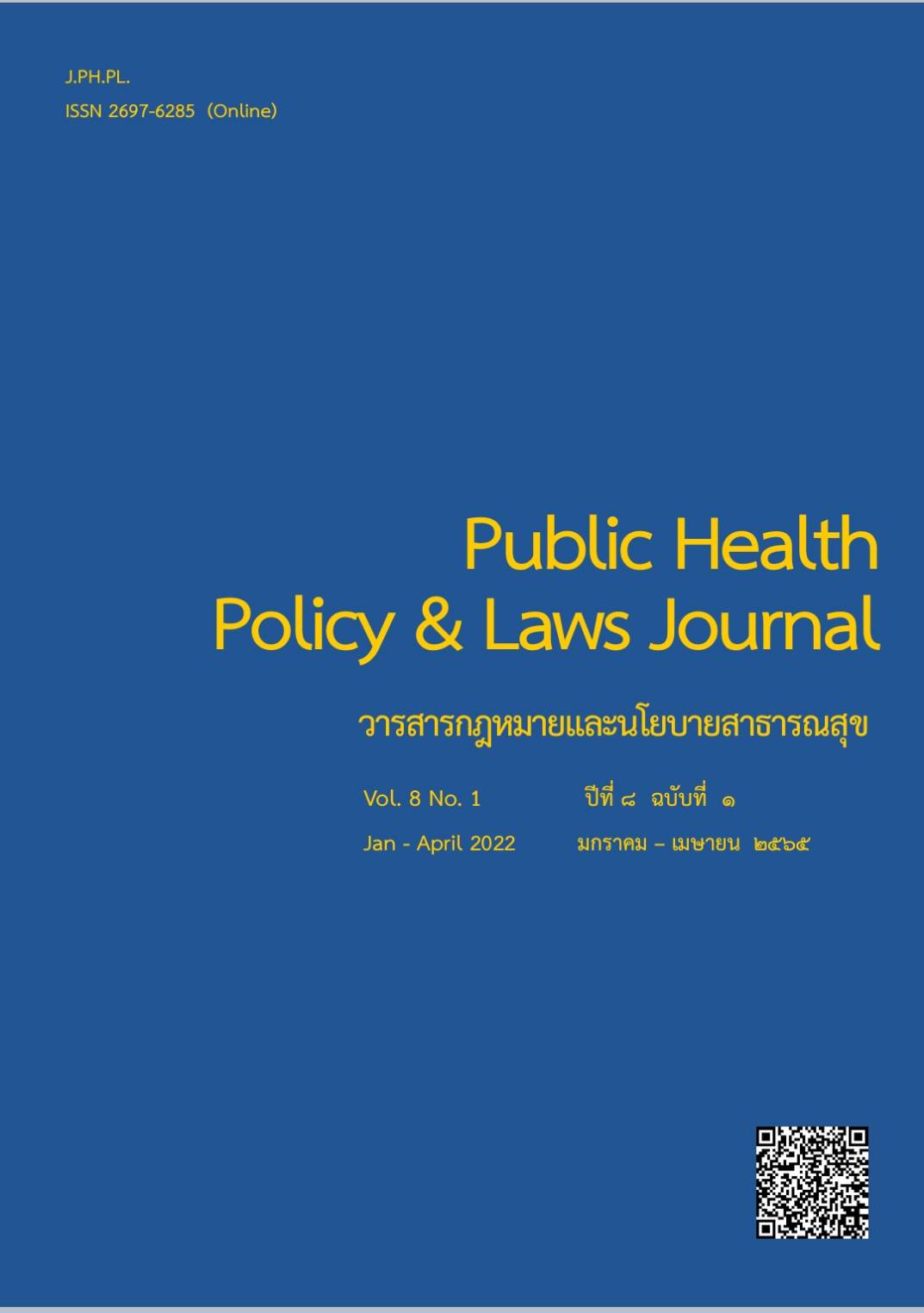Health Literacy and Glycemic Control Behaviors of the Elderly Patients with Type 2 Diabetes
Keywords:
Health Literacy, Glycemic Control Behavior, Elderly, Type 2 DiabetesAbstract
Diabetes is a chronic, non-communicable disease, that is a challenging public health problem, and a global focus due to the impact of premature death of the population, increasing the disability of the population, and affecting the economy. Self-management is needed to control patient symptoms, and health literacy is an important factor affecting self-management. The elderly is an important target group that needs to be trained in health literacy, including a service system to facilitate the development of health literacy, which should be provided for the elderly, to be able to have analytical thinking about health literacy effectively. Therefore, medical professionals, or public health officials, should provide knowledge, or organize promotional activities, focusing on health literacy in each component to enhance individual self-management skills.
References
กรมสนับสนุนบริการสุขภาพ กระทรวงสาธารณสุข.(2559). การเสริมสร้างและประเมินความรอบรู้ด้านสุขภาพและพฤติกรรมสุขภาพ กลุ่มเด็กวัยเรียน กลุ่มวัยทำงาน. กรุงเทพมหานคร: นิวธรรมดาการพิมพ์.
กระทรวงสาธารณสุข. (2559) . แผนยุทธศาสตร์ชาติระยะ 20 ปี (ด้านสาธารณสุข). สืบค้นจากhttp://doh.hpc.go.th/data/HL/healthStrategy20year.pdf
กองสุขศึกษา.(2560). กระบวนงานบริการสุขศึกษาเพื่อสร้างความรอบรู้ด้านสุขภาพในสถานบริการสุขภาพภาครัฐบูรณาการมาตรฐานโรงพยาบาลและบริการสุขภาพ. นนทบุรี: โรงพิมพ์กองสุขศึกษา กระทรวงสาธารณสุข.
กลุ่มข้อมูลข่าวสารสุขภาพ. (2559). สถิติสาธารณสุข พ.ศ. 2559. นนทบุรี: กองยุทธศาสตร์และแผนงานกระทรวงสาธารณสุข.
ขวัญเมือง แก้วดาเกิง และ นฤมล ตรีเพชรศรีอุไร. (2556). ความฉลาดทางสุขภาพ.(พิมพ์ครั้งที่ 3). กรุงเทพฯ: โรงพิมพ์ชุมนุมสหกรณ์การเกษตรแห่งประเทศไทย (จากัด).
ขวัญเมือง แก้วดำเกิง. (2560). เจาะลึก Health Literacy. ใน มณีรัตน์ ธีระวิวัฒน์ (บ.ก.), การประชุมวิชาการสุขศึกษาแห่งชาติ ครั้งที่ 18 เรื่อง การพัฒนาพฤติกรรมสุขภาพยุค 4.0. ภาควิชาสุขศึกษาและพฤติกรรมศาสตร์ คณะสาธารณสุขศาสตร์ มหาวิทยาลัยมหิดล, กรุงเทพมหานคร.
คณะกรรมการอำนวยการจัดทำแผนสุขภาพแห่งชาติ. (2559). แผนพัฒนาสุขภาพแห่งชาติ ฉบับที่ 12
(พ.ศ.2560-2564). นนทบุรี: กระทรวงสาธารณสุข.
นิทรา กิจธีระวุฒิวงษ์. (2558). การนำความฉลาดทางสุขภาพไปปฏิบัติงานสาธารณสุข. วารสารวิจัยคณะสาธารณสุขศาสตร์ มหาวิทยาลัยขอนแก่น, 8(2), 68-75.
ภคภณ แสนเตชะ และประจวบ แหลมหลัก. (2563). ผลของโปรแกรมพัฒนาความรอบรู้ด้านสุขภาพในผู้ป่วยโรคเบาหวานชนิดที่ 2 ตำบลแม่ปืม อำเภอเมือง จังหวัดพะเยา. วารสารสุขศึกษา, 43(2), 150-164.
สภาขับเคลื่อนการปฏิรูปประเทศ. (2559) .การปฏิรูปความรอบรู้และการสื่อสารสุขภาพ. สืบค้นจากhttps://library2.parliament.go.th/giventake/content_Nrsa2558/d111459-03.pdf สหพันธ์โรคเบาหวานนานาชาติ. (2561). ประเด็นสารรณรงค์วันเบาหวานโลก ปี 2561. สืบค้นจาก http://www.thaincd.com/.
สุรีย์ ธรรมมิกบวร. (2551). การรอบรู้สุขภาพเพื่อการส่งเสริมสุขภาพ: การวิเคราะห์แนวคิด. วารสารคณะพยาบาลศาสตร์ มหาวิทยาลัยขอนแก่น, 31(2), 53-58.
อภิญญา อินทรรัตน์. (2557). ความฉลาดทางสุขภาพของผู้ประกอบวิชาชีพด้านสุขภาพ. วารสารพยาบาลทหารบก, 15(3), 174-178.
อ้อมฤทัย มั่นในบุญธรรม. (2562). ผลของโปรแกรมปรับเปลี่ยนพฤติกรรมโดยการเสริมสร้างความรอบรู้ด้านสุขภาพในการควบคุมระดับน้ำตาลในเลือดและชะลอไตเสื่อมของผู้ป่วยเบาหวานชนิดที่ 2 โรงพยาบาลส่งเสริมสุขภาพตำบลสำราญ. วารสารสำนักงานสาธารณสุขจังหวัดขอนแก่น, 1(2), 121-132.
American Diabetes Association. (2013). Economic costs of diabetes in the US in 2012. Diabete Care, 36(4), 1033-1046. doi: 10.2337/dc12-2625
Al Sayah, F., Majumdar, S. R., Williams, B., Robertson, S., & Johnson, J. A. (2013). Health literacy and health outcomes in diabetes: a systematic review. Journal of General Internal Medicine, 28(3), 444-452. DOI: 10.1007/s11606-012-2241-z.
Baker, D.W., Gazmararian, J.A., Williams, M.V., Scott, T., Parker, R. M., Green, D., Ren, J. Peel, J. (2002). Functional health literacy and the risk of hospital admission among Medicare managed care enrollees. American Journal of Public Health, 92(8), 1278-1283. doi: 10.2105/ajph.92.8.1278
Hersh L, Salzman B, Synderman D. (2015). Health literacy in primary care practice. Am FamPhysician, 92(2), 118-124. Retieved from https://www.aafp.org/afp/2015/0715/p118.html
Lynn N. Bohlman, Allison M. Panzer & David A. Kindig. (2004). Health literacy: A prescription to
end confusionApril 8, 2004 Report. Retrieved from https://pubmed.ncbi.nlm.nih.gov/25009856/
Jordan J, Burchbinder R, Osborne R. (2010). Conceptualising health literacy from the patient perspective. Patient and Education Counseling, 79(1), 36-42.
Kaissi, A. A., & Parchman, M. (2009). Organizational factors associated with self-management behaviors in diabetes primary care clinics. The Diabetes Educator, 35(5), 843-850.
Koenigsberg, M. R., Bartlett, D., & Cramer, J. S. (2004). Facilitating treatment adherence
with lifestyle changes in diabetes. American Family Physician, 69(2), 313-319.
McCarthy, D., Waite, K., Curtis, L., Engel, K., Baker, D., & Wolf, D. (2012). What did the doctor say? Health literacy and recall of medical instructions. Medicare, 50(4), 277-282.
DOI: 10.1097/MLR.0b013e318241e8e1
Nutbeam D. (2008). The evolving concept of health literacy. Social Science & Medicine, 67(12), 2072-2078. DOI: 10.1016/j.socscimed.2008.09.050
Quinlan P, Price KO, Magid SK, Lyman S, Mandl LA, Stone PW. (2013). The relationship among health literacy, health knowledge, and adherence to treatment in patients with rheumatoid arthritis. HSS J, 9(1), 42-49. DOI: 10.1007/s11420-012-9308-6
Schillinger, D., Grumbach, K., Piette, J., Wang, F., Osmond, D., Daher, C., Palacios, J., Sullivan, G.D. and Bindman, A.B. (2002). Association of health literacy with diabetes outcomes. Journal of the American Medical Association, 4(288), 475-482. DOI: 10.1001/jama.2884.475
United Nations. (2015). Sustainable Development Goals. Retrieved from https://www.un. org/sustainabledevelopment/sustainable-development-goals/
Warnecke, R. B., Oh, A., Breen, N., Gehlert, S., Paskett, E., Tucker, …K. L. (2008). Approaching health disparities from a population perspective: The national institutes of health centers for population health and health disparities. American Journal of Public Health, 98(9), 1608-1615. doi: 10.2105/AJPH.2006.102525
World Health Orgranization. (2009). Health Literacy and Health Promotion: Definitions Concepts and Examples in the Eastern Mediterranean Region. Individual Empowerment Conference Working Document. 7th Global Conference on Health Promotion Promoting. Retrieved from https://www.dors.it/documentazione/testo/201409/02_2009_OMS%20Nairobi_Health%20Literacy.pdf
World Health Organization. (2011). 10 facts about chronic diseases. Retrieved from http://www.who.int/features/factfil
Downloads
Published
How to Cite
Issue
Section
License
Disclaimer and Copyright Notice
The content and information presented in articles published in the Journal of Law and Public Health Policy represent the opinions and sole responsibility of the respective authors. The editorial board does not necessarily agree with or assume any responsibility for the views expressed.
All articles, data, content, images, and other materials published in the Journal of Law and Public Health Policy are the intellectual property of the journal. Any individual or organization wishing to reproduce, distribute, or otherwise use the entirety or any part of such materials must provide proper citation.





